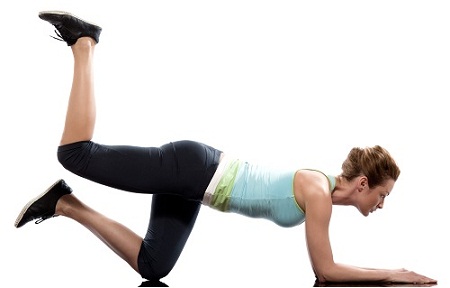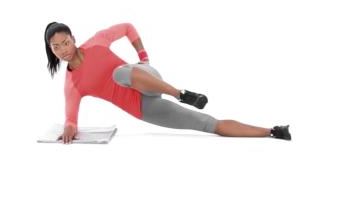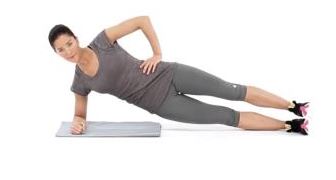The questions about glutes come from both female and male athletes, as well as general fitness enthusiasts. All of whom truly want to increase their speed, power and strength. The proper development of glutes can allow individuals to not only run, jump and swim faster, but can also increases their explosive power during sporting activities.
These muscles, when properly developed, also give you the advantage of squatting with more weight or performing better lunges. The exercises for glute development must be executed with a specific strategy, focus and intention, which will benefit any athlete.
By understanding this anatomy, it is clear that strong glutes allow us to perform a multitude of athletic movements more efficiently. Glute development is not simply about the aesthetics but more importantly, about the improves athletic performance.
Anatomy Of The Glutes
The phrase “lower core muscle group” refers to the glutes because there has always been controversy about whether or not the glutes should be considered a part of the core. The core muscle groups are extensive and include a long list of muscles that run from varied parts of the spine, torso and pelvis. These muscles are critical for appropriate posture, balance and upright gait.
There are many muscles of the glute area, three of the main players: gluteus maximus, gluteus medius and gluteus minimus. The origins and insertions of these muscles are fairly complex. These muscles originate from different parts of the pelvis and insert on different areas of the thigh and leg bones. Also branches of the gluteal nerve innervate the gluteal muscles.
The gluteus maximus is an extensor of the trunk and thigh and also a lateral rotator of the thigh. The gluteus medius and minimus both medially rotate and abduct the thighs along with steadying the pelvis. There are also many other muscles of the gluteal region including the piriformis, gemelli, obturator internus and quadratus femoris.
The first two exercises are variations of a classic and extremely effective exercise for the glutes. It has been labelled the donkey kick, all-four-hip extensions and kick backs. The name is fairly inconsequential, but performing the exercise properly is your ticket to strong and powerful glute muscle development.
Here are your 3 exercises to start your glute journey:
Donkey Kick
The basic donkey kick has two variants. The first involves a starting point of being down on the mat on your hands and knees. I suggest using a thick mat or cushions to protect your knees during these exercises.

- Keep your leg straight and extend your hip.
- As you raise your leg behind you, bring it up higher than your spine.
- Concentrate on lifting the leg with the hip in extension and not simply swinging the leg, which is ineffective.
- Relax your neck during this exercise.
2 to 3 sets of 10-15 repetitions of these exercises, with or without weights.
Elbow To Knee
This exercise has the same starting position, but you must counterbalance on one side while lifting and flexing the knee and bringing the elbow to the knee.

- Lie on your side, arm up, in a side plank.
- Bring your elbow and knee to the centre, hold for 2 seconds and release.
- Return to the starting position and repeat the movement for the desired number of repetitions before switching sides.
- Swap sides and repeat.
2 to 3 sets of 10-15 repetitions of these exercises.
Side Straight Arm Hip Abductions
This exercise involves keeping the arm and leg straight at your side while simply abducting your hip. It is important to stay stable and to not tilt onto the counterbalanced side. This is a somewhat advanced exercise and can be very effective when executed properly.

- This exercise is simply a static position with a slight lift of the hips.
2 to 3 sets of 10-15 repetitions of these exercises.


